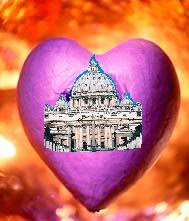
ACT I
The setting: A stable outside the forgotten little town of Bethlehem (House of Bread). Shepherds and their families and kings from the east as well as a few other curious onlookers stare at a newborn wrapped in coarse linen in a feeding trough for animals. A bright star overhead illuminates the otherwise dark night.
Shepherd boy, while yawning, says to his father: “Just looks like a baby boy to me, can’t we go home now?”
Father to boy: “ Thomas, the angels in the field said something about a Savior. Let’s just stay awhile.”
Boy: How could a Savior and King look and.... yecch!… smell like a little baby? He looks just like any other baby to me!”
King from the Orient, kneeling before the makeshift crib says with a whisper: “Shhh, don’t you know the ancient prophecies? God would come to us, to live among us, through a virgin’s womb.
Balthasar looking at the Child then raising his eyes to heaven says: The God of Israel has chosen this night to redeem us. Our Savior and King has come to us as a little child.
ACT II
Fast forward 33 years.
Setting: Jerusalem at Passover. The city is buzzing with the noise of pilgrims and bristling under the Roman occupation.
At the meal of the Passover, Jesus surrounded by his companions prays the blessing. As he breaks the bread he stretches out his hand holding the bread saying:
“Take this and eat. This is my body….”
One of the twelve disciples leans over to another and says under his breath;
“How can this be? It looks just like any other piece of bread to me? How can He give us His body to eat?
The disciple whom Jesus loved said to him: "Thomas, don't you remember last year when he told us He would give us his body to eat and His blood to drink?
Then as supper was ended, Jesus took the cup and gave it to his disciples saying:
"This is my blood of the new testament, which shall be shed for many…"
THE END
Just as Christ came to us in the improbable form of a human baby, He continues to abide with us in the equally preposterous “breaking of the bread.” God chose the common things of this world to reveal Himself. First a baby born in Bethlehem* and then bread and common table wine. As we approach the Lord’s Table at Midnight Mass this Christmas Eve, our mind says, it just looks like a piece of bread but our heart says, "Jesus, bread of life, you have come to abide with me this night."
Check this
link for scriptural references on the Eucharist.
*Bethlehem means House of Bread. This is no coincidence.




















TJ, PD and all:
As most of us know, there is an old Christian adage that we each have a Christ-shaped hole in our heart. I was contemplating how this truism relates to the Church-shaped hole you describe, when it occurred to me that there is a scriptural basis by which those who nevertheless are Christian but out of full fellowship might still feel a void in the heart--and in recognizing it, I also found some concern for my non-Catholic Christian friends that I'd not had before. To wit: It occurs to me that when Jesus appeared on the road to Damascus to Saul who was persecuting the Church, our Lord said, "Why do you persecute me?" The implication is astounding.
Although it ought to be obvious, it hadn't hit me that there is a sense in which the Church, being the mystical body of Christ, stands in its entirety as a vicar of Christ. To embrace her is to embrace Christ in yet another meaningful way. There is indeed a Church-shaped void in every human heart, because by definition it is part of the Christ-shaped void.
This is why it is such horrible scandal when anyone should lead "even the least of these" astray. It is also why it is a scandal that so many of our fellow Christians attack the Church.
Those who actively seek to defame the Church while ignoring truth (which would otherwise merely be seeking to correct her), risk offending God.
Pray for them that their eyes may be opened as were Saul's. For their sake, may we all be even more vigilant in our imitations of Christ, so we do not scandalize His mystical body.
Speaking as an expert of sorts: as one who has so often been a poor example, I ask forgiveness of all of you whether or not you are in full fellowship. That which I have done to the least of His brothers, I have done unto Him. May the Holy Spirit mend whatever harm I've ever done.